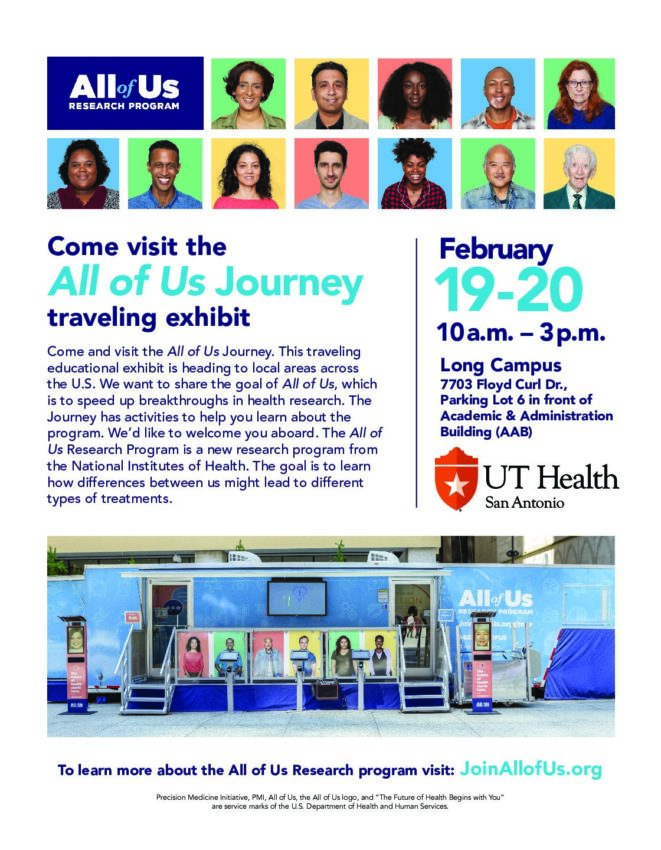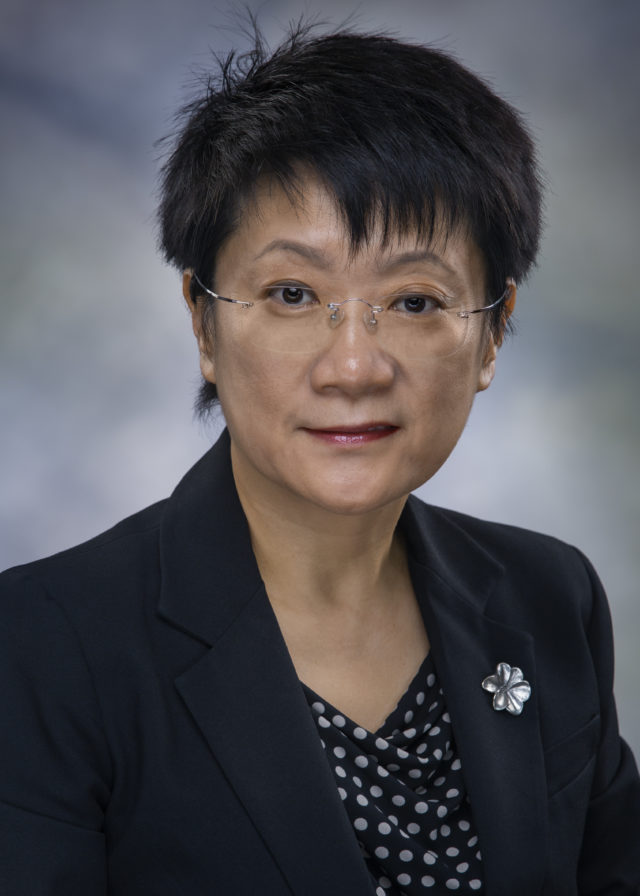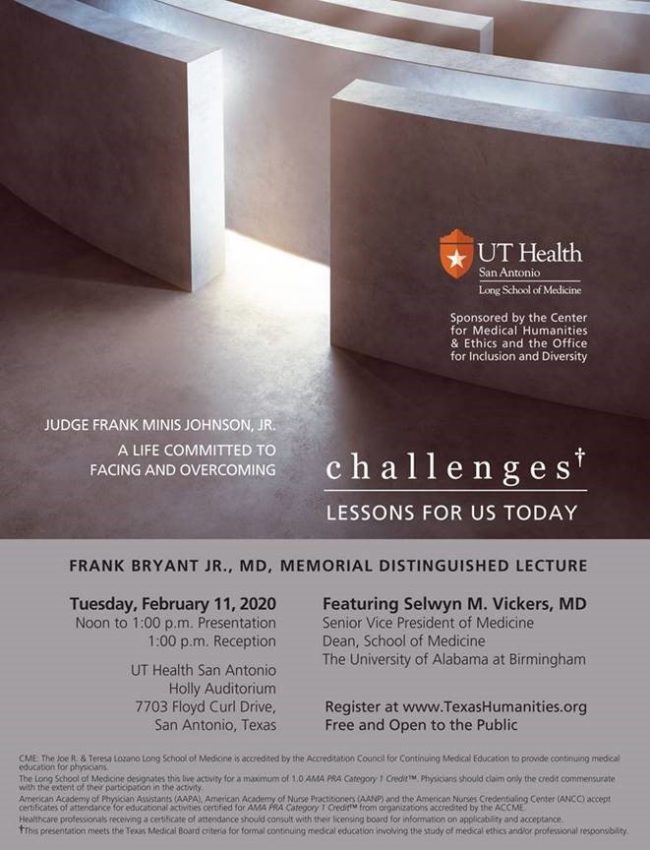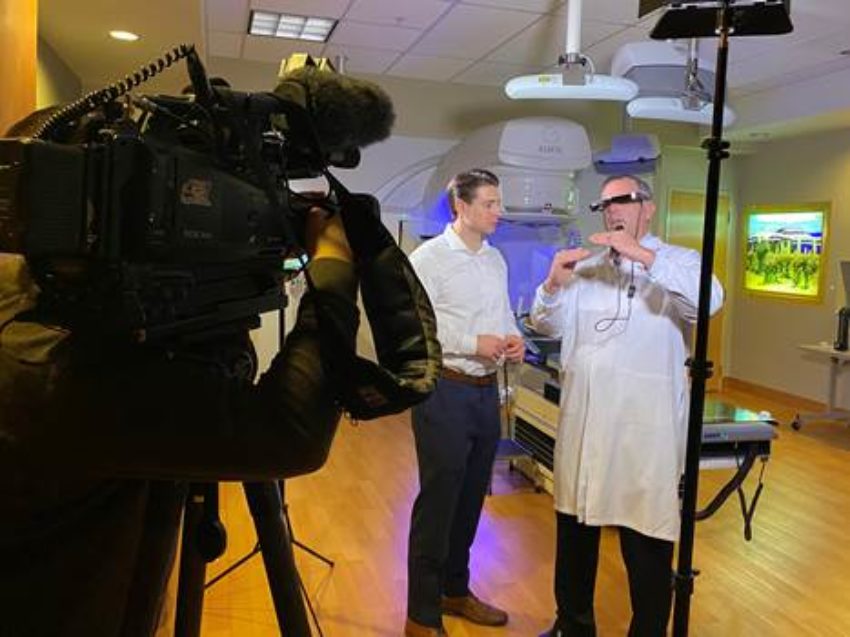Join us from noon to 1:00 p.m. Tuesday, Feb. 11, to be inspired by the example of legendary federal jurist Frank Minis Johnson Jr., whose landmark rulings helped end segregation. His story will be told by fellow Alabamian Selwyn M. Vickers, M.D., School of Medicine dean at the University of Alabama at Birmingham. By describing the far-reaching impact that one person had on equity and diversity, Dr. Vickers delivers an ethical call to action to confront today’s challenges. He seeks to instill the courage to question the status quo and change our world.
The event is the 2020 Frank Bryant Jr., M.D., Memorial Distinguished Lecture, an annual event of the Center for Medical Humanities and Ethics at UT Health San Antonio. A catered reception will follow the event.
Date: Tuesday, Feb.11, 2020
Time: Noon-1 p.m. presentation | 1 p.m. reception
Place: UT Health San Antonio Holly Auditorium, 7703 Floyd Curl Drive, San Antonio, Texas 78229
The event is free and open to all. Register here.
# # #
The Long School of Medicine at The University of Texas Health Science Center at San Antonio is named for Texas philanthropists Joe R. and Teresa Lozano Long. The school is the largest educator of physicians in South Texas, many of whom remain in San Antonio and the region to practice medicine. The school teaches more than 900 students and trains 800 residents each year. As a beacon of multicultural sensitivity, the school annually exceeds the national medical school average of Hispanic students enrolled. The school’s clinical practice is the largest multidisciplinary medical group in South Texas with 850 physicians in more than 100 specialties. The school has a highly productive research enterprise where world leaders in Alzheimer’s disease, diabetes, cancer, aging, heart disease, kidney disease and many other fields are translating molecular discoveries into new therapies. The Long School of Medicine is home to a National Cancer Institute-designated cancer center known for prolific clinical trials and drug development programs, as well as a world-renowned center for aging and related diseases.
The University of Texas Health Science Center at San Antonio, dba UT Health San Antonio, is one of the country’s leading health sciences universities and is designated as a Hispanic-Serving Institution by the U.S. Department of Education. With missions of teaching, research, patient care and community engagement, its schools of medicine, nursing, dentistry, health professions and graduate biomedical sciences have graduated more than 37,000 alumni who are leading change, advancing their fields, and renewing hope for patients and their families throughout South Texas and the world. To learn about the many ways “We make lives better®,” visit www.uthscsa.edu.
Stay connected with The University of Texas Health Science Center at San Antonio on Facebook, Twitter, LinkedIn, Instagram and YouTube.





